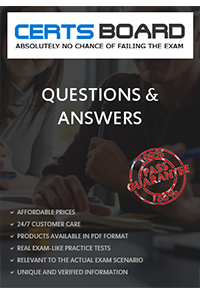SCENARIO
Please use the following to answer the next QUESTION
Matt went into his son’s bedroom one evening and found him stretched out on his bed typing on his laptop. “Doing your homework?” Matt asked hopefully.
“No,” the boy said. “I’m filling out a survey.”
Matt looked over his son’s shoulder at his computer screen. “What kind of survey?” “It’s asking QUESTION NO:s about my opinions.”
“Let me see,” Matt said, and began reading the list of QUESTION NO:s that his son had already answered. “It’s asking your opinions about the government and citizenship. That’s a little odd. You’re only ten.”
Matt wondered how the web link to the survey had ended up in his son’s email inbox. Thinking the message might have been sent to his son by mistake he opened it and read it. It had come from an entity called the Leadership Project, and the content and the graphics indicated that it was intended for children. As Matt read further he learned that kids whotook the survey were automatically registered in a contest to win the first book in a series about famous leaders.
To Matt, this clearly seemed like a marketing ploy to solicit goods and services to children. He asked his son if he had been prompted to give information about himself in order to take the survey. His son told him he had been asked to give his name, address, telephone number, and date of birth, and to answer QUESTION NO:s about his favorite games and toys.
Matt was concerned. He doubted if it was legal for the marketer to collect information from his son in the way that it was. Then he noticed several other commercial emails from marketers advertising products for children in his son’s inbox, and he decided it was time to report the incident to the proper authorities.
Depending on where Matt lives, the marketer could be prosecuted for violating which of the following?
SuperMart is a large Nevada-based business that has recently determined it sells what constitutes “covered information” under Nevada’s privacy law, Senate Bill 260. Which of the following privacy compliance steps would best help SuperMart comply with the law?
Which of the following became the first state to pass a law specifically regulating the practices of data brokers?
The CFO of a pharmaceutical company is duped by a phishing email and discloses many of the company’s employee personnel files to an online predator. The files include employee contact information, job applications, performance reviews, discipline records, and job descriptions.
Which of the following state laws would be an affected employee’s best recourse against the employer?


